Lise Isabelle Benoist*
Abstract: This article looks at the metapolitics of the French far right, a sphere of organisations and personalities that are waging a counter-hegemonic cultural fight, thought to be a precondition to political change. In France, singularly an incubator for a green nationalist narrative, this so-called “Gramscianism of the right” is today embodied by countless media outlets. This article critically analyses the content on “ecology” of selected materials from this sphere, in order to shed light on the main discourses around this topic. This research reveals a diversity of approaches towards ecology, coherent with the variety of trends present in the far-right metapolitics. From remains of climate denialism to right-wing co-optations of degrowth, it revolves around an opposition to immigration, symbol of a wider left globalist ideology that threatens European identity. Such an ecology thus requires rootedness and the acknowledgment of natural limits that apply as much to nature as to humans.
Keywords: Metapolitics, French far right, Integral Ecology, Gramscianism of the Right, Right-wing Décroissance
Introduction
Climate change mitigation is facing yet another obstacle: in the last decade, countries around the world have experienced a significant rise of far-right populist parties. While the majority openly display a climate denialist line, France seems to be an incubator for a green nationalist narrative expressed primarily by the Rassemblement National (Malm and The Zetkin Collective, forthcoming 2021). The party’s manifesto for the last European elections, tailored by Hervé Juvin, a European MP since then, wishes to create a “European ecological civilisation”: the protection of identity and the environment go hand in hand through localism and rootedness in a closed territory (Rassemblement National, 2019); a notion summarized by Jordan Bardella as: “the best ally of ecology is the border” (Landrieu, 2019). The party-politics billboard is however only the tip of the far-right iceberg.
At the end of the 1960’s, the intellectual movement Nouvelle Droite was launched around its think-tank GRECE [1] and the figure of Alain de Benoist. Moving away from street activism and parliamentary politics, it undertook the intellectual path of “metapolitics”. The underlying belief of the movement is that cultural and ideological change is a precondition to political transformations, therefore advocating for a “Gramscianism of the right” (GRECE, 1982; Bar-on, 2013; Dohet 2016; Keucheyan, 2017; Savatier 2017; Camus, 2019). This “battle of ideas” is a strategy that has gained power throughout the years and is today waged through a plethora of media outlets (from magazines to websites and videos), generated by an interconnected network of leading figures and mother organisations. A “Fachosphère” in expansion (Albertini and Doucet, 2016; François, 2018), the metapolitical enterprises of cultural reconquest contribute to the normalisation of far-right narratives, eventually assisting their success in election polls, in a latent dialectical relation with the party-politics actors.
What are the discourses around ecology emerging from this sphere? This article especially draws on the works of Stéphane François (2009, 2016a, 2016b), Zoé Carle (2017) and Paul Guillibert (2019), some of the few scholars who have investigated the ecological dimensions of the French far right. This subject of study is diverse and so are the ecological approaches. Whether it derives from Christian or neo-pagan, nationalist or pan-europeanist, anti-capitalist or national-liberal inspirations, ecology is used to reinforce variations of identitarian, “rooted” and “human” conceptions of ecology used to justify profoundly ethno-differentialist, anti-egalitarian and conservative visions of the world (François, 2009, 2016a, 2016b; Carle, 2017; Schlegel, 2018; Guillibert, 2019; Vincent, 2019; Forchtner, 2019).
Furthermore, ecology as a theme challenges the traditional left/right divide as it provides a diagnostical common ground for critics of capitalism on both ends of the political spectrum. Degrowth is a good example that illustrates this tension (Cazenave, 2018; François, 2019) as it has succeeded in bringing about controversial collaborations such as those between the French degrowth philosopher Serge Latouche and Alain de Benoist, also a décroissance [2] proponent (de Benoist 2018[2007]). Every so often, Latouche comfortably spreads degrowth ideas through de Benoist’s media outlets such as Krisis (Latouche, 2018), Éléments (Latouche, 2017) or in Thibault Isabel’s l’Inactuelle (Latouche, 2019), an author of the same circles. Yet, many degrowth scholars have repeatedly denounced right-wing co-optations of degrowth. They emphasize the fundamental differences and incompatibilities between movements such as the Nouvelle Droite and the degrowth movement, especially in terms of equality, justice, solidarity, democracy and wider intersectionality (Flipo et al., 2012; Lepesant, 2012; Demaria et al., 2013; Eversberg, 2019); values traditionally considered left-wing. This study of recent selected materials from the metapolitical sphere thus aims to understand and expose dangerous narratives around what far-right interpretations of ecology entail.
Image 1:»When the Rassemblement National goes green», illustration made by the author, original photo retrieved from the RN’s official images.

Methodology
This article presents the results of a thematic analysis conducted on a purposive sample of 64 articles and 2 videos, using both inductive and deductive coding (Lapadat 2010; Krippendorff, 2018). Some actors openly state to have chosen a metapolitical strategy such as Marion Maréchal, the Le Pen niece (Belaïch, 2018; Soullier, 2019), or the New Right. With the help of the far-right map of La Horde (2019), an anti-fascist organisation, I considered the other sources to similarly belong to the realm of metapolitics, as I believe they participate in the ideological crusade of the far right. The material comes from 12 sources combining online content and printed articles, published between January 2019 and the end of February 2020 (See Table 1 for a summary and Annex 1 for details).
Table 1: List of sources
|
|
Source (name and subtitle or motto) |
Type of source |
Type of material |
Number of material analysed |
|
1 |
Boulevard Voltaire – Freedom guides our steps |
Information website |
online |
12 articles |
|
2 |
L’incorrect – Silence him! |
Magazine |
online |
5 articles |
|
3 |
Causeur – Especially if you disagree |
Magazine |
paper |
8 articles |
|
4 |
Les identitaires – Laboratory of ideas for the defense of the European civilisaiton and Génération Identitaire |
Organisations |
online |
5 articles, 1 video |
|
5 |
Eléments – For the European civilisation |
Magazine |
paper |
6 articles |
|
6 |
Polémia – Foundation for identity, security and European freedoms |
Organisation |
online |
11 articles |
|
7 |
Action française – All that is national is ours |
Organisation |
online |
4 articles |
|
8 |
Dreuz.info – Your morning breath of air to cope better with the lies of the media |
Information website |
online |
3 articles |
|
9 |
Limite – Integral ecology magazine |
Magazine |
online |
8 articles |
|
10 |
Institut Iliade – for the long European memory |
Organisation |
online |
2 articles |
|
11 |
Egalité et reconciliation – Left-wing labour and right-wing values |
Organisation |
online |
1 video |
|
|
Total |
64 articles, 2 videos |
||
Main findings
As mentioned above, the sources gathered for the purpose of this article are far from being homogeneous. Intrinsic ideological divisions regard issues such as religion, sovereignty, the economy and progress. Trying to draw clear lines between overlapping categories is not the goal of this article; rather, it is to bring up common recurrent themes on what those actors have to say on “ecology” on the one hand, and of their own vision of it on the other. Here follows a critical summary of the predominant discourses brought to light in the analysis.
“Climanipulation ?” (6.1) : reason over the “Thunbergian dogma” (6.7)
Despite the widespread acknowledgment of climate change, one can still find a statement such as “the causal link between climate changes and human activity is not clearly proven” (3.4). Several highly problematic classic denialist arguments remain, questioning and undermining the consequences of a global warming: warmer temperatures are rather enjoyable, CO2 benefits humanity and the weather has always changed anyway (3.4; 3.7; 6.5; 6.6; 8.2; 12.1); there are too many uncertainties and we would need a balanced debate on the potential implications (1.4; 3.2; 3.7; 6.5); the so-called climate emergency is perceived to be “an apocalyptic faith” (3.1), unnecessarily catastrophist, a new “eco-religion”: the “ecologism” (1.4; 2.4; 3.4; 4.1; 4.2; 6.7; 6.10; 6.11; 7.3; 7.4; 8.1). According to the Identitarians, it is as if “the planet replaces God, which humans have deeply offended. They then need to do penance” (4.1); ecology is a new moralism trying to control people’s lives and thoughts, burdening them with illegitimate culpability (1.5; 3.1; 4.2; 6.7). Greta Thunberg is a violently targeted villain: the “great priestess” (6.10), a “climatic guru” or a “shaman” (6.7). How does this rebellious, “prepubescent” school-striking young girl dare to tell us what to do? (1.2; 1.6; 6.7). One should not be seduced by an emotional discourse of fear, but stick to reason, pragmatism, scientific rationality and common sense (2.3; 3.1; 3.7; 6.4; 6.7).
“Green is the new red” (2.4)
Greta Thunberg is however seen as a mere symbol of a greater power at work: “who is behind Greta?” (6.11). Some claim that she is a propaganda puppet, a “marketing product” of green capitalists who manipulate her for their economic interests (2.1; 5.1; 6.6; 6.7; 7.3); especially renewable energy entrepreneurs whose wind turbines destroy the cultural landscape (2.1; 2.4; 6.2). At a greater scale, she is seen as an ambassador of the “green alarmist doxa”, spreading the ideology of the left at large (4.2; 6.6). A simple proof is her intersectional approach on the climate crisis: racism, colonization, patriarchy, capitalism; i.e a confusing neo-marxist mishmash typical of far-left globalists holding the European white man responsible for all evils (1.1; 3.1; 4.2; 4.3; 6.4). Two arguments emerge from this premise. First, ecology is yet another guilt strategy already burdening the European memory (1.1; 4.1; 6.5): “ecology is the punishment imposed by the world superclass to the Westerners” (1.5). Second, ensuing from this logic is the notion that ecology is both the tool and the path to the implementation of a communist dictatorship (2.4; 6.11; 8.3): “When will we get a little green book?” (6.11). Totalitarian measures are deployed such as the enforcement of taxes and norms, the silencing of divergent opinions to impose its “ideological deliriums” like post-coloniality, neo-feminism and gender theory (1.4; 1.5; 1.11; 2.4; 3.1; 4.1; 6.4; 6.8; 8.2; 12.1) – which feeds the myth of Cultural Marxism. Ecology is being instrumentalized for the implementation of a “world government” (6.5; 6.6; 12.1), a term worshipped by conspiracy theorists.
“The real ecology knows no party” (1.10)
In the metapolitics of the French far right, ecology aims to preserve nature within the larger objective of protecting European identity – but with no concern for global climate justice. “To defend one’s people is also to defend both one’s nature and one’s culture” (5.5), explains Alain de Benoist. The fundamental idea of the existence of natural boundaries not to be overstepped is extrapolated from physical resources to human nature. This argument is used in favour of concrete borders to protect the natural habitat of a specific people from the alleged ecologically and culturally destructive left-wing liberal globalisation. While some stick to a classic conservative vision, others agree that, regardless of religious beliefs, there is a need for an alternative modernity away from neo-liberal capitalism, blurring the lines between left and right. Some of those “right-wing Gramscians”, similar to degrowth activists, fight against the colonization of the imaginaries and the alienation caused by the current economic paradigm and the ensuing marketization of more and more aspects of life. They rightly reject the nonsense of endless growth and the hegemony of profit making. However, they also reject other people and multiculturalism according to an alleged natural order of the world. The advertised diversity is merely a smokescreen for a new form of racism: a cultural (Taguieff, 1990), differentialist one (François, 2009). This worldview is in clear opposition to the pluriverse promoted by the degrowth movement (Demaria & Kothari 2017; D’Alisa, 2019; Kothari et al., 2019). Alain de Benoist fights capitalism on one side but applauds the radical xenophobic actions of the activists of Génération Identitaire on the other (5.5). As the socio-ecological crisis intensifies and continues to uncover the excesses of neo-liberal capitalism, being attentive to the alliances induced by hybrids of left and right approaches to ecology is not only relevant but crucial. Alliances reflect acceptation and normalisation. “Shouldn’t we give up on the right-left dichotomy […]? For example, do I have to forbid Alain de Benoist to claim himself to belong to degrowth because he is classified to the Right?”, Latouche (2013) asks. This point certainly deserves further debate, yet I believe that global solidarity and intersectional justice are non-negotiable pillars of ecology. The Corona virus pandemic might accelerate the need to reaffirm “our ecology” as opposed to “theirs”, in an adaptation of André Gorz’s words (Durand & Keugheyan, 2020). Right-wing co-optations of degrowth and alike should be resisted before they advance further into party politics.
Bibliographical reference list:
Albertini, D. and D. Doucet, 2016. La Fachosphère. Comment l’extrême droite remporte la bataille d’Internet, Paris, Flammarion.
Bar-On, T., 2013. Rethinking the French new right: alternatives to modernity. London, Routledge.
Belaïch, C., 2018. « Métapolitque », notion magique de la frontiste, Libération (May 30), Available at : https://oeilsurlefront.liberation.fr/les-idees/2018/05/30/metapolitique-notion-magique-de-la-frontiste_1655515 Consulted on April 30th, 2020.
de Benoist, A., 2018. Décroissance ou toujours plus ? Penser l’écologie jusqu’au bout. Pierre- Guillaume de Roux. New edition of : de Benoist, A., 2007. Demain, la décroissance!: penser l’écologie jusqu’au bout. Edite.
Camus, J.Y., 2019. Alain de Benoist and the New Right. In M. Sedgwick (ed.), Key Thinkers of the Radical Right: Behind the New Threat to Liberal Democracy, New York, Oxford University Press, 73-90.
Carle, Z., 2017. Contre-révolutions écologiques: Quand les droites dures investissent la défense de la nature, Revue du Crieur, vol. 8 (3), 44-61.
Cazenave, F,. 2018. Derrière la décroissance, de la gauche à la droite identitaire, une multitude de chapelles, Le Monde (December 2), Available at: https://www.lemonde.fr/economie/article/2018/12/02/derriere-la-decroissance-une-multitude-de-chapelles_5391604_3234.html Consulted on April 30th, 2020.
D’Alisa, G., 2019. «Degrowth», Dicionário Alice. Available at: https://estudogeral.sib.uc.pt/bitstream/10316/87061/1/Degrowth_Dicionario%20Alice.pdf Consulted on April 30th, 2020.
Demaria, F., F. Schneider, F. Sekulova, and J. Martinez-Alier, 2013. What is degrowth? From an activist slogan to a social movement. Environmental Values, 22(2), 191-215.
Demaria, F. and A. Kothari, 2017. The Post-Development Dictionary agenda: paths to the pluriverse. Third World Quarterly, 38(12), 2588-2599.
Dohet, J., 2016. Le Gramsci de l’extrême droite, Aide-Mémoire, vol. 78, Available at: https://www.territoires-memoire.be/aide-memoire/aide-memoire-78/201812061700-le-gramsci-de-l-extreme-droite.html Consulted on February 24th, 2020.
Durand & Keugheyan, 2020. L’heure de la planification écologique. Le Monde Diplomatique (May), 16-17. Available at: https://www.monde-diplomatique.fr/2020/05/DURAND/61748 Consulted on May 1st, 2020.
Eversberg, D., 2019. A dangerous courtship: The authoritarian nationalist right and the post-growth debate. Degrowth (April 29). Available at: https://www.degrowth.info/en/2019/04/a-dangerous-courtship-the-authoritarian-nationalist-right-and-the-post-growth-debate/ Consulted on April 30th, 2020.
Flipo, F., F. Schneider, and D. Bayon, 2012. La décroissance: Dix questions pour comprendre et débattre. La Découverte.
François, S., 2009. La Nouvelle Droite et l’écologie : une écologie néopaïenne ?. Parlement[s], Revue d’histoire politique, 12(2), 132-143.
François, S., 2016a. L’extrême droite française et l’écologie. Retour sur une polémique, Revue Francaise d’Histoire des Idées Politiques, (2), 187-208.
François, S., 2016b. L’Ecologie : un enjeu d’extrême droite. Fondation Jean Jaurès. Available at: https://jean-jaures.org/sites/default/files/Notes-14-ORAP.pdf Consulted on February 24th, 2020.
François, S., 2018. Fachos 2.0 ou comment les idées d’extrême droite se répandent jusque chez vous, The Conversation (April 9). Available at: https://theconversation.com/fachos-2-0-ou-comment-les-idees-dextreme-droite-se-repandent-jusque-chez-vous-94192 Consulted on February 24th, 2020.
François, S., 2019. La décroissance d’extrême droite, Critica Masonica (July 31), Available at: http://criticamasonica.over-blog.com/2019/06/la-decroissance-d-extreme-droite.html Consulted on April 30th, 2020.
Forchtner, B., 2019. Far-right articulations of the natural environment. In B. Forchtner. (ed.), The Far Right and the Environment, London, Routledge, 1-17.
GRECE, 1982. Pour un «gramscisme de droite»: Actes du XVIème Colloque national du G.R.E.C.E., Palais des congrès de Versailles, 29 novembre 1981. Paris, Labyrinthe.
Guillibert, P., 2019. Land, race and nomadism: the Rassemblement National’s ideology of rootedness, Conference presentation (November 16) at The Political Ecologies of the Far Right, Lund University, Lund, Sweden.
Keucheyan, R., 2017. Alain de Benoist, du néofascisme à l’extrême droite « respectable », Revue du Crieur, (1), 28-143.
Kothari, A., A. Salleh, A. Escobar, F. Demaria, and A. Acosta, (eds.), 2019. Pluriverse: A post-development dictionary. Tulika Books and Authorsupfront.
Krippendorff, K., 2018. Content analysis: An introduction to its methodology, Thousands Oaks, California , Sage publications, 122.
La Horde, 2019. Cartographie de l’Extrême Droite francaise, La Horde. Available at: https://lahorde.samizdat.net/2019/12/16/cartographie-de-lextreme-droite-francaise-mise-a-jour-hiver-2019-2020/ Consulted on February 24th, 2020.
Landrieu, V., 2019. Jordan Bardella : « Le meilleur allié de l’écologie, c’est la frontière », Les Echos (April 7), Available at: https://www.lesechos.fr/elections/europeennes/jordan-bardella-le- meilleur-allie-de-lecologie-cest-la-frontiere-1007315 Consulted on February 24th, 2020.
Lapadat, J., 2010. Thematic Analysis. In A. J. Mills, G. Durepos, E. Wiebe. (eds.), Encyclopedia of Case Study Research, Thousand Oaks, CA, Sage Publications, 926-927.
Latouche, S., 2013. « La décroissance permet de s’affranchir de l’impérialisme économique », Reporterre (December 21), Available at: https://reporterre.net/La-decroissance-permet-de-s Consulted on April 30th, 2020.
Latouche, S., 2017. A la rencontre des pionniers de la décroissance : entretien avec Serge Latouche, Éléments, n°167.
Latouche, S., 2018. Peut-on concilier la croissance et l’écologie?, Krisis, n°49.
Latouche, S., 2019. Entretien: Serge Latouche « Pour Baudrillard, la pub nous rend addicts », l’Inactuelle (March 21), Available at: https://linactuelle.fr/index.php/2019/03/21/baudrillard-serge-latouche-decroissance-castoriadis/ Consulted on April 30th, 2020.
Lepesant, M. and Ariès, P., 2012. Notre décroissance n’est pas de droite. Golias Éditions.
Malm, A., and the Zetkin Collective, forthcoming 2021, White Skin, Black Fuels: On the Dangers of Fossil Fascism, London, Verso.
Rassemblement National, 2019. Pour une Europe des nations, Rassemblement National. Available at: https://rassemblementnational.fr/telecharger/publications/Manifeste.pdf Consulted on February 24th, 2020.
Savatier, A., 2017. Pour un gramscisme de droite, Polemia (Octobre 30th), Available at : https://www.polemia.com/pour-un-gramscisme-de-droite/ Consulted on April 30th, 2020.
Schlegel, J.L., 2018. Les limites de Limite. Esprit, (1), pp.207-212.
Soullier, L., 2019. Dans le discours de Marion Maréchal, les mots de l’extrémisme. Le Monde (October 2), Available at: https://www.lemonde.fr/politique/article/2019/10/02/marion-marechal-les-mots-de-l-extremisme_6013952_823448.html Consulted on February 24th, 2020.
Taguieff, P.A., 1990. The new cultural racism in France. Telos (83), 109-122.
Vincent, C., 2019. « Ecologie intégrale », écofascisme…: une histoire des écologies identitaires. Le Monde (October 4). Available at: https://www.lemonde.fr/idees/article/2019/10/04/ecologie-integrale-ecofascisme-une-histoire-des-ecologies-identitaires_6014144_3232.html Consulted on February 24th, 2020.
Annex 1: Detailed list of sources
|
1 |
BOULEVARD VOLTAIRE |
|
1.1 |
L’écologie ? Il paraît que c’est aussi la faute aux colonies ! |
|
1.2 |
Greta Thunberg, l’écologie adolescente |
|
1.3 |
Écologie de choc : que veut le groupe Extinction Rébellion ? |
|
1.4 |
Valeurs de droite et écologie : comment reconquérir un terrain perdu ? |
|
1.5 |
Rouen : la preuve que l’écologie n’est qu’une arme politique |
|
1.6 |
Faut-il abandonner l’écologie à Greta Thunberg ? |
|
1.7 |
L’écologie : naturellement, une valeur de droite ! |
|
1.8 |
L’écologie de marché, c’est bon pour la planète ? |
|
1.9 |
Déchets électroniques et plastique contre réchauffement climatique : l’écologie du tiroir-caisse |
|
1.10 |
Pour Noël Mamère, l’écologie ne peut être de droite : de gauche, non plus ! |
|
1.11 |
Et si on favorisait une écologie conservatrice et postmoderne ? |
|
1.12 |
Alain de Benoist : « Avec la surpopulation, c’est un monde invivable qui se dessine… » |
|
2 |
L’INCORRECT |
|
2.1 |
Écologie : l’Europe contre elle-même |
|
2.2 |
Écologie intégrale et identité : réponse à Gaultier Bès |
|
2.3 |
Christophe Mori : « Les changements climatiques et les enjeuxécologiques entre déni et défi. » |
|
2.4 |
Green is the new red ou la dictature au nom de la planète |
|
2.5 |
Pour une jeunesse enracinée |
|
2.6 |
Discours Marion Maréchal Convention de la Droite, (on youtube) |
|
3 |
CAUSEUR #66 – Contre la religion du climat pour la raison |
|
3.1 |
Les Missionnaires de l’Apocalypse |
|
3.2 |
Écologie partout, politique nulle part |
|
3.3 |
Le changement climatique, c’est maintenant ! |
|
3.4 |
« La démographie est la première question écologique mondiale » (interview) |
|
3.5 |
« L’agriculture s’est complètement affranchie de la nature » |
|
3.6 |
Déforestation, le rideau de fumée |
|
3.7 |
Le CO2, uen chance pour la planète ? |
|
3.8 |
Le Glyophosate pollue wikipedia |
|
4 |
LES IDENTITAIRES (incl. Génération Identitaire) |
|
4.1 |
Analyse du raz-de-marée écologiste dans les médias d’un point de vue identitaire |
|
4.2 |
Greta Thunberg ou la nouvelle éco-religion |
|
4.3 |
Les SJW, enfants monstrueux de la gauche |
|
4.4 |
Ecologie : protéger et sanctuariser la dernière ferme de Lyon |
|
4.5 |
«La remigration est la seule solution à la hauteur des défis de notre temps» |
|
5 |
ELEMENTS #180 – L’Identité, pour quoi faire ? |
|
5.1 |
Portrait du Bourgeois en Monsieur météo – La droite est-elle condamnée au climatoscepticisme ? |
|
5.2 |
Brève histoire du réchauffement – session de rattrapage pour les climatosceptiques |
|
5.3 |
Internet ! Et si on débranchait ? Les nécrotechnologies |
|
5.4 |
CETA: le traité qui entérine la disparition des frontières. Les multinationales contre les terroirs |
|
5.5 |
Nous et les autres. Nature et Culture, l’identité en débat |
|
5.6 |
Entretien avec Clément Martin. Génération Identitaire, le «Greenpeace de droite» |
|
6 |
POLEMIA |
|
6.1 |
Climanipulation ? |
|
6.2 |
Europe Écologie Les Verts, l’écologie politique à l’extrême gauche |
|
6.3 |
Pas de lutte contre la mondialisation sans fin du dogme de la croissance |
|
6.4 |
Marion Maréchal : « Nous voulons défendre une civilisation et non un marché ! » |
|
6.5 |
Jean-Yves Le Gallou : « Si le réchauffement climatique est dû à l’homme, alors il faut lutter contre le libre-échange et l’immigration ! » |
|
6.6 |
Le lobby vert entend bien se servir en effet de la vague de chaleur qui frappe notre pays, pour faire avancer son projet régressif, au prétexte de « l’urgence climatique ». |
|
6.7 |
Greta Thunberg, « La psychologie des foules » appliquée à l’écologie |
|
6.8 |
Vers un totalitarisme écolo-bobo-gaucho ? |
|
6.9 |
Amazonie : « L’incendie, un élément vital dans le cycle de vie des écosystèmes » |
|
6.10 |
Greta Thunberg, outil de la super-classe mondiale ? |
|
6.11 |
Greta Thunberg : égérie verte ou garde rouge ? |
|
7 |
Action Francaise |
|
7.1 |
Vers une écologie intégrale |
|
7.2 |
Les Royalistes, L’écologie et le Bien Commun |
|
7.3 |
Les paradoxes de l’écologie anthropophobe |
|
7.4 |
Pour une politique écologique |
|
7.5 |
Mathieu Slama : Greta Thunberg, l’égérie verte de Davos ? |
|
8 |
DREUZ.info |
|
8.1 |
Quelques réflexions sur l’écologie |
|
8.2 |
Écologie : youpi, un bon gros totalitarisme à visage humain ! |
|
8.3 |
Noël Mamère, Alexandria Ocasio-Cortez: les bandits de l’écologie |
|
9 |
Limite |
|
9.1 |
Notre manifeste |
|
9.2 |
Bernard Friot : « Chrétien, je ne peux pas être capitaliste » |
|
9.3 |
Biotéthique: ne nous trompons pas de combat |
|
9.4 |
« L’origine humaine du réchauffement climatique est établie scientifiquement » |
|
9.5 |
Capitalisme: comment réveiller les catholiques ? |
|
9.6 |
Europacity ou la charybde moderne |
|
9.7 |
La décroissance rend-elle obsolète le clivage gauche-droite ? |
|
10 |
Institut Iliade |
|
10.1 |
2020 : la nature comme socle |
|
10.2 |
Exposition et concours photo : la nature comme socle |
|
11 |
Egalité et Réconciliation |
|
11.1 |
Soral a (presque toujours) raison – Épisode 11 |
—
[1] In English: Research and study group on the European civilisation. (Groupement de Recherche et d’Etudes sur la Civilisation Européenne)
[2] French word for “degrowth”.
—
* Lund University, Department of Human Geography, Human Ecology Division and Zetkin Collective. Email: Li8450be-s@student.lu.se
—







